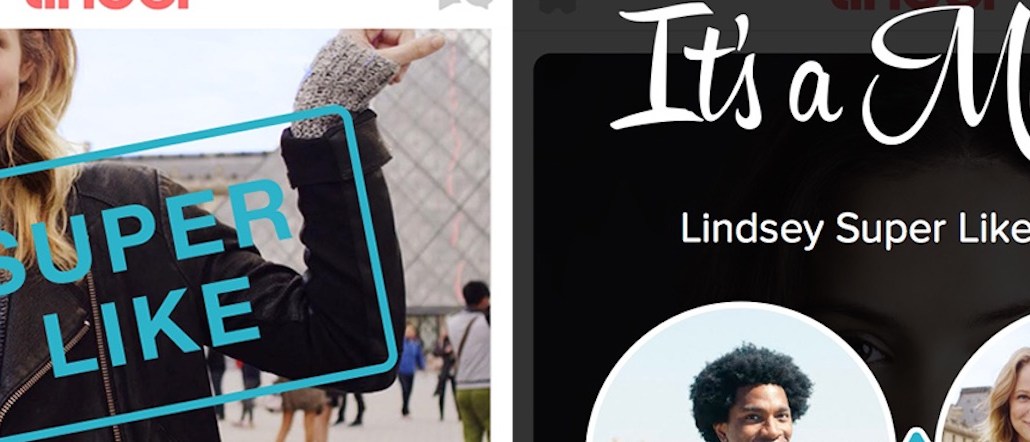
Tinder is increasing the thirst factor with a new swipe called the “Super Like.”
The option, rolled out to all of the dating app’s users today, is essentially a right swipe on steroids.
Instead of swiping right to signal that they like the person, they swipe up activating the “Super Like” function, which then alerts the selected user with a badge indicating they’ve received an enhanced like.
The intent is to give the user an extra incentive to strike up a conversation since the suitor really, really, really, really likes them, or at least their profile pictures, as seen here:

Users get one free Super Like a day, which can’t be banked. Tinder Plus users, who pay $9.99 a month for extra features like unlimited right swipes, receive five Super Likes a day.
According to Tinder’s test of a small group of Australian users last month, the tool actually sparks longer conversations (70 percent longer, in fact) and matches were three times more likelier to occur.
On top of generating revenue from advertisements, Tinder CEO Sean Rad told TechCrunch that the new option is converting more people to subscribe to Tinder Plus because of the increased number of matches.
“We’ve seen Super Like have a meaningful impact on Tinder Plus conversion,” Rad said. “And that stems out of the value that people are getting from the Super Like.”
Images via Tinder.
More in Marketing

WTF are tokens?
When someone sends a prompt or receives a response, the system breaks language into small segments. These fragments are tokens.

AI is changing how retailers select tech partners
The quick rise of artificial intelligence-powered tools has reshaped retailers’ process of selecting technology partners for anything from marketing to supply chain to merchandising.

YouTube’s upmarket TV push still runs on mid-funnel DNA
YouTube is balancing wanting to be premium TV, the short-form powerhouse and a creator economy engine all at once.





